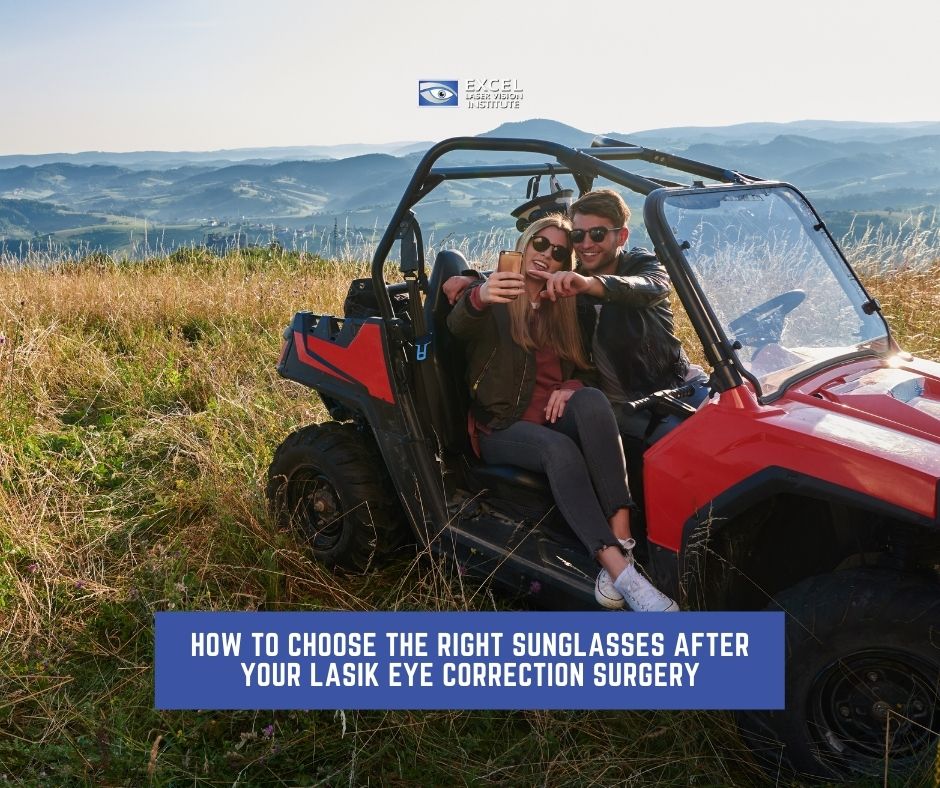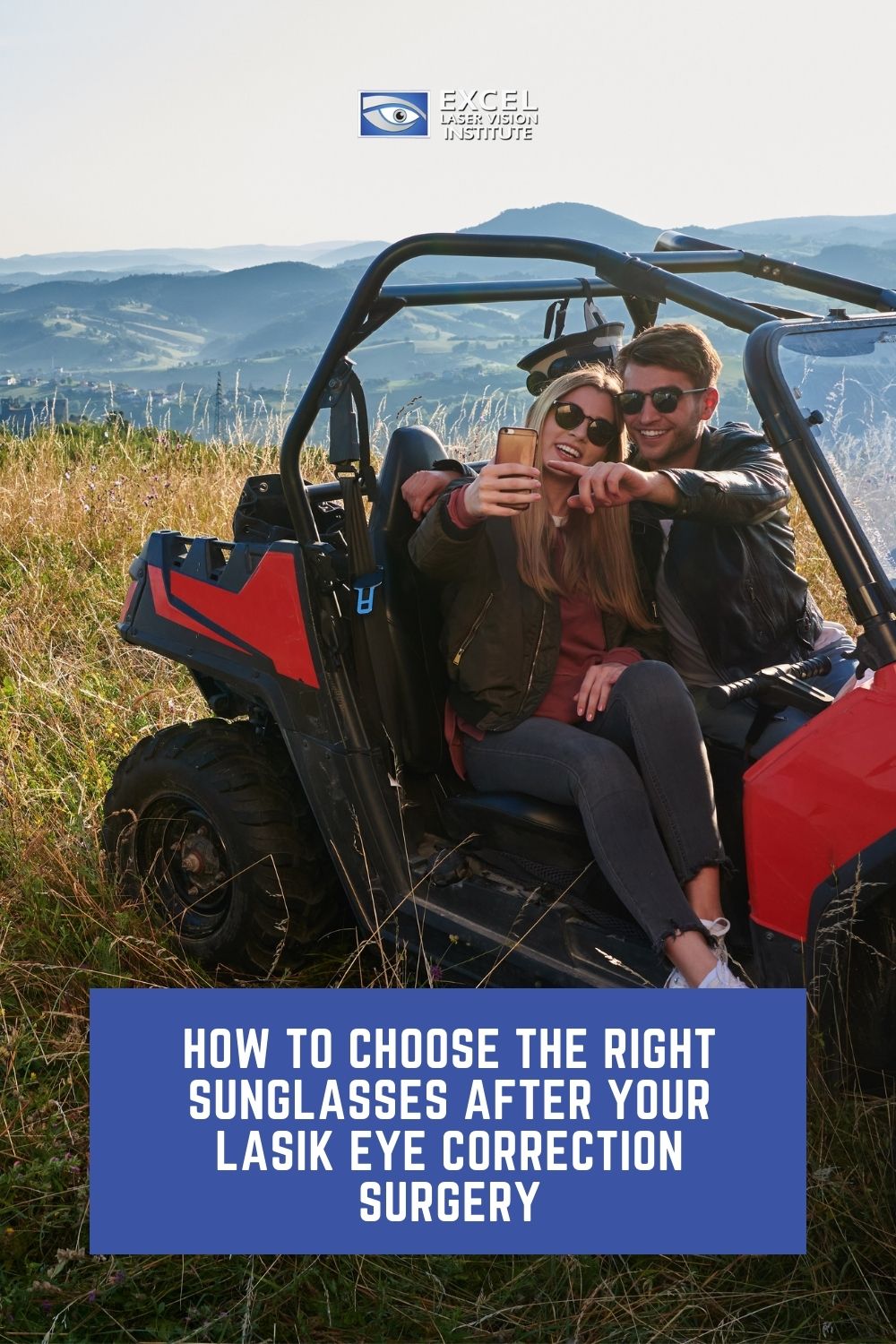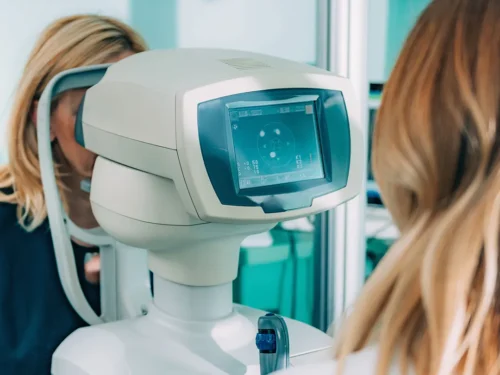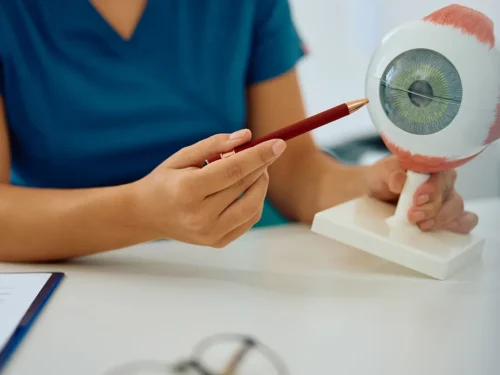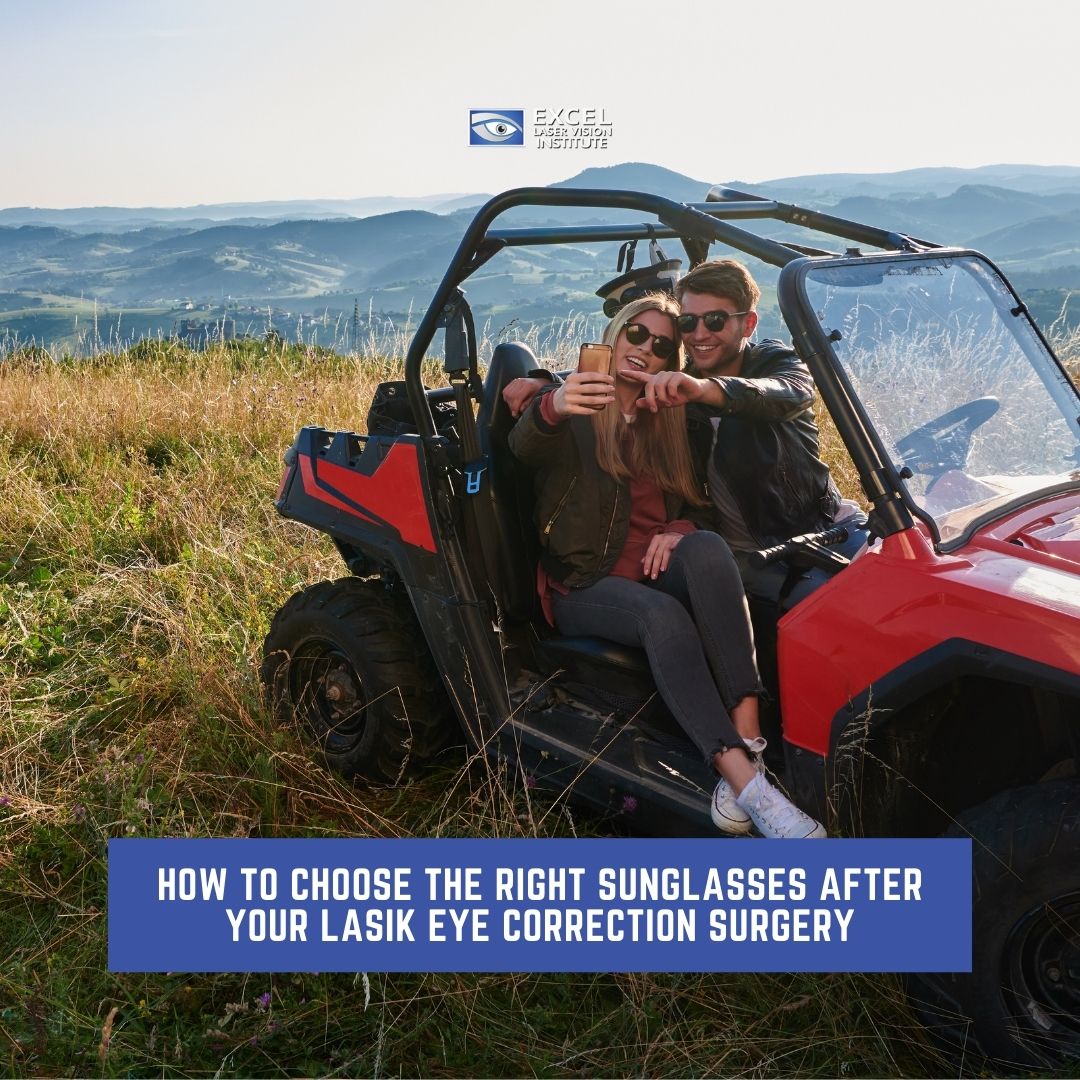
Imagine you have just had a LASIK, PRK, or even Contoura in Orange County done, and one of the supportive LASIK team members hand over to you a part of post-operative sunglasses and ask you to wear them. These sunglasses will not be the oversized plastic Cataract shades, but they aren’t going to be a fabulous sporty pair of Ray-Ban aviators either!
The first thing that the best laser eye surgery doctor in Orange County will tell you is to go shopping and get yourself a good pair of sunglasses to protect your eyes. However, the million-dollar question is, “What makes a pair of sunglasses the best pair to protect your eyes?” The American Academy of Ophthalmology has created the criteria below to give you a helping hand when choosing the best sunglasses to protect your eyes from the sun.
Which Sunglasses Should I Purchase?
If you think sunglasses are only a fashion accessory, think again. They are vital protection for your eyes against the harmful rays of the sun. You must understand what type of light you need to protect your eyes from and what type of light is not necessarily harmful. Here is some advice from a LASIK eye surgery doctor in Orange County on picking out the right pair of nonprescription sunglasses.
Sunglasses Should Block The Harmful Rays Of The Sun
Go for the sunglasses that block ninety-nine percent of ultraviolet (UV) rays. This is the most critical attribute of your sunglasses, and you should always choose sunglasses that offer this protection. Long-term exposure to ultraviolet (UV) radiation in sunlight is connected to eye disease, including cataracts. Some manufacturers’ labels claim UV absorption up to 400nm. This is the same as 100 percent UV absorption. Some glasses make additional claims for blocking infrared rays, but studies have not shown a close link between infrared rays and eye disease.
A more expensive pair of sunglasses doesn’t necessarily mean a better pair of sunglasses. Many types of affordable sunglasses provide 99 to 100 percent UV protection, so you don’t have to fork over tons of cash on a pair of sunglasses. Inspect the quality of the sunglasses. Besides UV protection, you should also check the optical quality of the lenses. The LASIK eye doctors in Orange County recommend you test the quality of sunglasses by looking at something with a rectangular pattern, such as a floor tile. Get a hold of the glasses at a comfortable distance and cover one eye. Move the glasses gradually from side to side, then up and down. If the lines remain straight, the lenses are good. If the lines zigzag, particularly in the center of the lens, try on another pair.
You want to look for impact-resistant lenses. All sunglasses must meet impact standards that the U.S. food and Drug Administration has set out for safety. No lens is really unbreakable, says the LASIK eye doctor in Orange County, but plastic lenses are not as likely to shatter when hit by a ball or stone. Polycarbonate plastics, utilized in many sports sunglasses, are incredibly durable but scratch easily. If you buy polycarbonate lenses, choose ones that have a scratch-resistant coating.
Make sure to use protective eyewear rather than sunglasses for hazardous activities. If you are going to be busy in outdoor activities such as water or snow skiing that put your eye in harm’s way for injury, don’t rely on your eyeglasses for protection. Protection eyewear is available with UV protection to safeguard your eyes from sunburn and glare.
Lens color tinting and polarization are personal options. There’s no medical reason to suggest one tint of the lens over another. The same goes for polarized lenses that work better at deflecting glare, but they’re not blocking any more harmful UV light than non-polarized lenses.
Undoubtedly you want a nice pair of polarized lenses after surgery. However, it is normal to experience some glare during your LASIK recovery, and polarized lenses are designed to reduce glare. You don’t have to opt for the most expensive pair of polarized lenses. You will know a pair of sunglasses are polarized since they will have a sticker or label indicating polarized.
When shopping for sunglasses, try to go for ones that provide full coverage. The sunglasses that your eye doctor will give you after surgery offer you lots of coverage, including peripheral vision, but you don’t need massive, bulky glasses for that. Try to find sunglasses with wraparound style lenses, which provide full coverage and often showcase a stylish design. It is best to find a pair that offers coverage for all angles of your vision.
When you find the right sunglasses, make sure you wear them, particularly in the summer when UV levels are about three times higher than in the winter. Also, be sure to wear them when taking part in winter sports, especially at high elevations.
Protecting your eyes as they heal after your PRK, LASIK, or Contoura surgery is essential. Unique, quality sunglasses will get the job done. Here at Excel Eye Vision Center, we can provide the sunglasses you need after your eye correction surgery. You are welcome to visit our clinic in Orange County and Los Angeles for a one-on-one consultation. Please call us at (866) 923-9235 if you want to set an appointment or ask questions about our available sunglasses suitable for post-PRK, LASIK, and Contoura cases.
At Excel Laser Vision Institute, we have a team of experienced staff and cutting-edge laser technology to perform Contoura, PRK, LASIK, SMILE, and other vision correction alternatives. Our Harvard-trained surgeon, Dr. Moosa, serves both our Orange County and Los Angeles offices. Once we assess your prescription and eye health, we can discuss which eye correction treatment is suitable for you, financing, and the next steps. Start your journey towards a clear vision that frees you from eyeglasses and contact lenses today.


